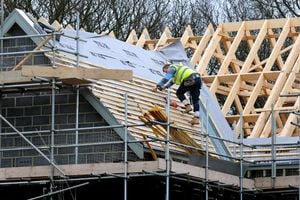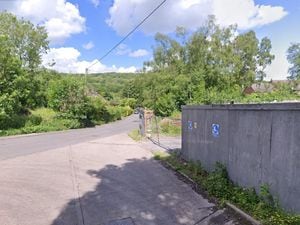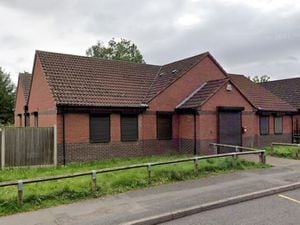Decision to block new housing estate in Telford upheld
The planning Inspectorate has backed the decision not to allow 27 new homes on a former industrial estate, saying the existing businesses are too close to live harmoniously with the residents.

Phoenix Mason UK Ltd applied to build 18 houses and nine flats on part of Doseley Industrial Estate, but Telford and Wrekin Council refused permission in January.
The company appealed, but government-appointed inspector Mark Dakeyne dismissed the case.
He said noise from an existing MOT garage to the west meant the homes would need non-opening windows and ventilation equipment on the side facing a nearby garage.
This lack of natural air, in exchange for reduced noise, he added, “does not suggest to me a good living environment”.
Mr Dakeyne visited the site, at the south end of Frame Lane, Doseley, in June, while drafting his appeal decision.
The document says Phoenix Mason’s proposal would have redeveloped “about half” the estate. Other areas of it are “partially vacant and partly in use by a variety of commercial premises”, including a garage carrying out repairs and MOTs.
“Some of the houses and flats would be sited close to, and have their gardens adjacent with, the boundary with the remaining industrial estate,” he wrote.
“At times the level and type of noise would be likely to be annoying and disturb the peace and quiet residents would expect to enjoy.”
Mr Dakeyne acknowledges Phoenix Mason made changes to the initial layout, including reorienting the living rooms at the flats and some of the houses to face away from the border.
“That said, other uses could operate on the adjacent land as well as the vehicle repair shop,” he wrote, adding he was not aware of any operating restriction in force there and new businesses “could generate noisier activities”.
Noise could be eliminated by providing sealed windows and “mechanical ventilation” would need to be installed on the flats’ west faces.
“Whilst this represents a technical solution,” Mr Dakeyne wrote, “non-opening windows with no natural ventilation do not suggest to me a good living environment.”
He added that “the fact that such measures are required reinforces my view that there would be an unsatisfactory relationship between the existing uses and the proposed homes.”
Conversely, he added, homes built so close to the estate, “could lead to complaints from residents due to noise and other nuisance”, potentially making it difficult for the businesses to operate.
“Ultimately, businesses might need to shed jobs or close,” he added.





